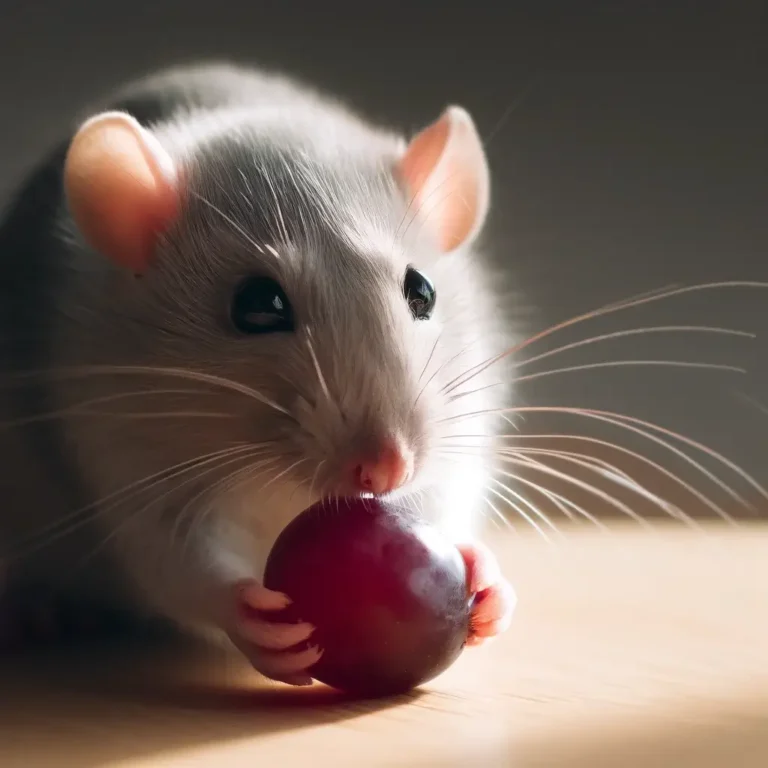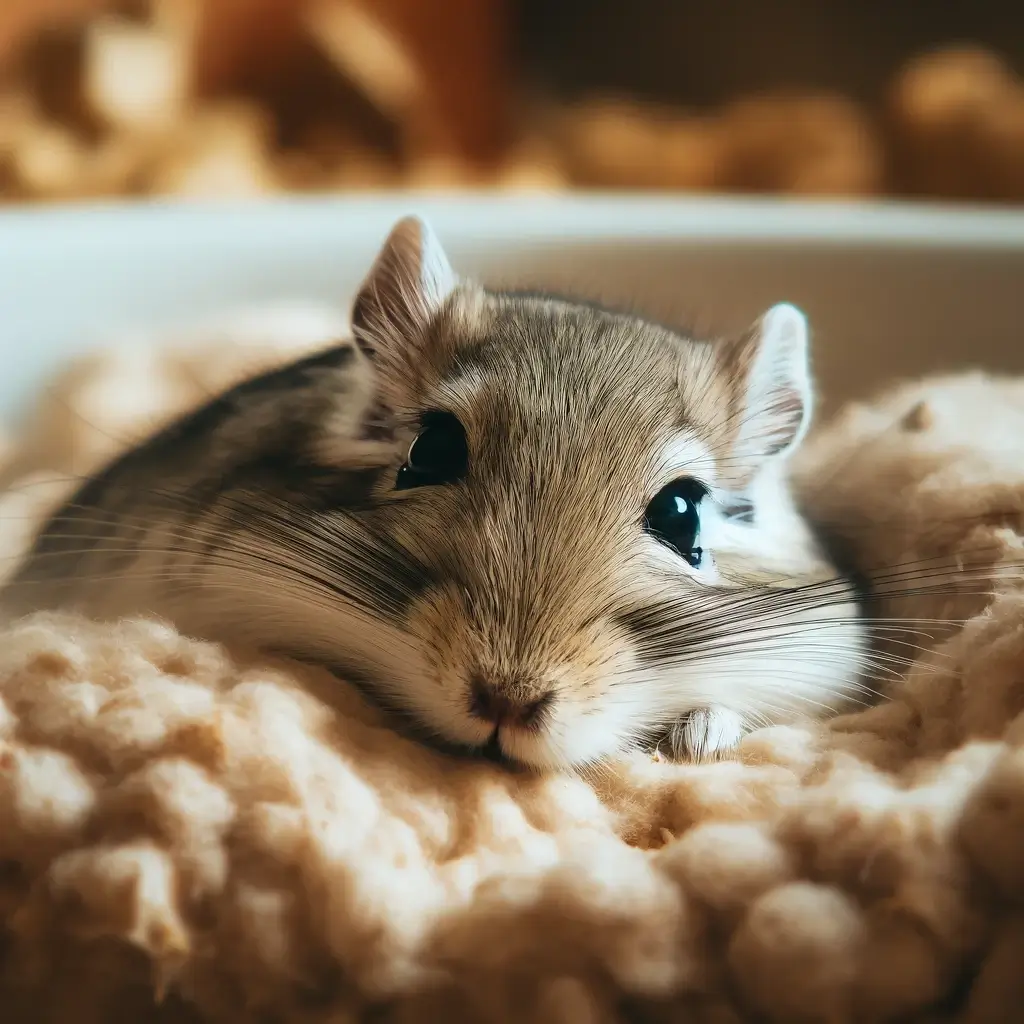Rats are fantastic companions – they’re intelligent, playful, and affectionate. To keep them happy and healthy, providing a well-balanced diet is crucial. Let’s dive into the dos and don’ts of what to feed pet rats.
The Foundations of a Healthy Rat Diet
- Commercial Rat Food: The cornerstone of your rat’s diet should be a high-quality rat food mix or pellet. Opt for brands with around 16-18% protein and 4-5% fat, specially formulated to meet their nutritional needs.
- Fresh Fruits and Vegetables: A wide variety of fresh produce packs essential vitamins, minerals, and antioxidants. Rat-friendly options are plentiful! We’ll get into the details shortly.
- Small Amounts of Protein: While plant-based foods dominate the menu, rats enjoy and benefit from small amounts of cooked lean chicken, fish, egg, or plain yogurt.
Foods to Offer in Moderation
- Seeds and Nuts: While they add variety, these are high in fat and should be given sparingly as occasional treats.
- Whole Grains: Cooked brown rice, whole-wheat pasta, and oats make healthy additions in limited quantities.
- Sweet Treats: Rats adore sweet flavors, but offer tiny amounts of honey or sugary fruits like bananas and mangoes as infrequent indulgences.
What Can Rats Eat? A List of Safe and Nutritious Foods
Here’s a breakdown of some fantastic fruit and vegetable choices to include in your rat’s diet:
Fruits
- Apples (remove seeds)
- Bananas
- Berries (blueberries, raspberries, strawberries)
- Grapes
- Kiwi
- Melons (cantaloupe, watermelon, honeydew)
- Mango
- Oranges (small amounts – see note on citrus below)
- Pears
- Peaches (remove pit)
- Plums (remove pit)
Vegetables
- Asparagus
- Broccoli
- Brussels sprouts
- Carrots
- Cauliflower
- Celery
- Corn
- Cucumber
- Kale
- Peas
- Peppers (bell, chili)
- Potatoes (cooked)
- Spinach
- Squash (butternut, zucchini)
- Sweet potatoes (cooked)
Important Notes:
- Citrus: Offer oranges, tangerines, and other citrus fruits in small amounts. While not toxic, too much can cause kidney issues in male rats.
- Variety is Key: Mix it up! Aim to provide a good diversity of fruits and vegetables to ensure a well-rounded intake of nutrients.
Foods to Absolutely Avoid
Some foods are either toxic or can pose a serious health risk to rats. Always steer clear of the following:
- Avocado: The skin, leaves, and pit contain persin, a toxin dangerous for rats.
- Chocolate: Contains substances harmful to rats that can lead to serious health problems.
- Caffeine: Found in coffee, tea, and soft drinks, this can cause heart problems and hyperactivity in rats.
- Raw Beans: Uncooked beans contain a harmful toxin. Always cook beans thoroughly before feeding them to your rats.
- Green Potatoes & Bananas: Unripe potatoes and bananas contain toxins that break down during the ripening process.
- Garlic and Onions: These can cause anaemia in rats.
- Sugary Processed Foods: Candy, cookies, cakes, etc. are nutritionally void and can lead to obesity and other health issues.
- Salty Snacks: Pretzels, chips, and other salty snacks are unhealthy and offer no nutritional benefit.
- Moldy Foods: Never give your rats spoiled or moldy food, as it can cause severe illness.
Additional Considerations
- Choking Hazards: Be mindful of foods that could pose a choking risk. Cut larger items into small pieces and remove seeds or pits from fruits like apples and peaches.
- Fresh Water: Ensure your rats always have access to clean, fresh water. Change it daily.
- Treats: Treats are great for training and bonding, but use them sparingly to avoid weight gain. Healthy options include small pieces of fruit, vegetables, or plain cooked grains.
FAQs about Rat Diets
- How often should I feed my rats?
Rats have fast metabolisms, so provide them with fresh food twice a day. A good routine is a serving of pellets or mix in the morning and a selection of fruits and vegetables in the evening. - Can I give my rats dog or cat food?
No. Dog and cat food formulas are tailored specifically to their nutritional requirements and are not suitable for rats. - My rat isn’t eating much, what should I do?
Changes in appetite can be a sign of illness. If your rat has suddenly stopped eating or is eating significantly less than usual, consult your veterinarian.
Portion Control: The Key to a Healthy Weight
It’s important to be mindful of portion sizes to prevent obesity in your pet rats. Here are some guidelines:
- Rat Food Mix/Pellets: Offer about 1 tablespoon per rat daily.
- Fruits and Vegetables: A serving size of roughly 1-2 teaspoons per rat of a variety of choices is plenty.
- Treats: No more than a small pinch of treats a few times a week.
Adjust portions based on your rat’s activity level and body condition. A rat with a healthy weight should have a slight pear shape and you should be able to feel (but not see) their ribs. If your rat feels round or you can’t easily feel its ribs, it may be overweight.
Tips for Encouraging Picky Eaters
Some rats can be fussy about their food. Here are some ways to entice them:
- Start young: If you have baby rats, introduce them to a wide variety of healthy foods early on; this makes them less likely to be picky as they grow.
- Offer small amounts: Don’t overwhelm your rat with big portions of new foods. Start with tiny pieces and gradually increase the amount if your rat shows interest.
- Different textures: Vary the textures of the foods you offer – some rats may prefer chopped fruits and vegetables, while others may like them mashed or whole.
- Be patient and persistent: Your rat may not immediately take to new foods, so continue to offer them in small amounts over time.
A Balanced Diet for Happy, Healthy Rats
By following these guidelines and providing your rats with a nutritious and balanced diet, you’re giving them the best foundation for a long and healthy life. A little research and planning goes a long way in ensuring your furry companions thrive.









